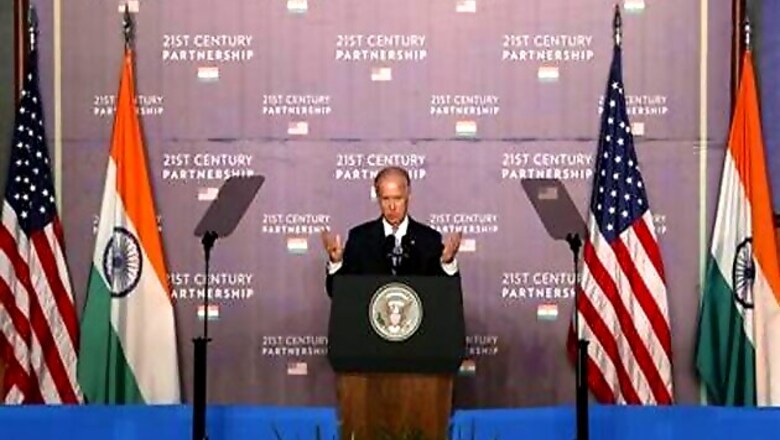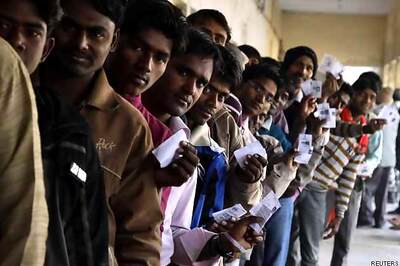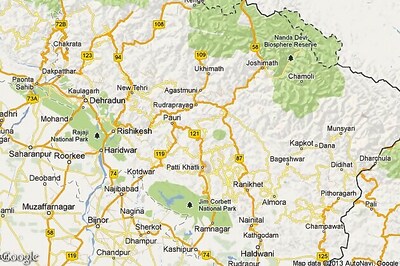
views
US Vice President Joe Biden sought on Wednesday to ease Indian concern about a possible political settlement with the Afghan Taliban, saying the insurgents would have to give up ties to al Qaeda and accept the Afghan constitution that guarantees equal treatment to women.
Biden, seeking to shore up Indo-US ties that have cooled in recent months over trade disputes and intellectual property rights also urged India to shun protectionism, calling for bold decisions to strengthen its economy.
India, which has invested billions of dollars in Afghanistan since the Taliban were ousted from power in 2001, is worried that reconciliation with the Taliban would embolden militant groups, some of which are backed by rival Pakistan, and threaten its interests.
The United States, on the other hand, preparing to withdraw most of its combat troops from Afghanistan by the end of 2014, has backed the talks as part of a broader process to end three decades of bloodshed.
"I know there are questions about the US position on reconciliation with the Taliban," Biden said in a wide-ranging speech at BSE, one of Mumbai's two main stock exchange.
"I want to make clear, we have always been committed to an Afghan-led, Afghan-owned process that needs three outcomes: that the Taliban must break with the al Qaeda permanently, stop the violence, accept the Afghan constitution and guarantee equal treatment for women," said Biden, who is on a four-day trip to India.
Talks with the Taliban are meant to find a way of bringing the insurgents back into the Afghan political process.
A plan to open a Taliban office in Qatar, as part of efforts to promote talks, erupted in a row after Afghan President Hamid Karzai objected to representatives of the Taliban raising their flag and giving the office a nameplate that suggested they wanted to set up a government-in-exile.
"Biden will need to assure the Indians that the US is not pursuing some secret deal with the Taliban that would put Indian regional security interests at risk," Lisa Curtis, a South Asia specialist at The Heritage Foundation, told Reuters.
Curtis said India-US relations had got bogged down in recent months over Afghanistan and Washington's frustration with what it sees as India's protectionist trade policies.
US COMPLAINTS GET LOUDER
US business groups this year have escalated their complaints about India's trade practices, complaining its policies discriminate against American firms or undermine US intellectual property rights, especially for pharmaceuticals.
Biden said the business environment had to improve to open the way for greater bilateral trade, which stands at about $100 billion a year.
"Protection of intellectual property, limits on FDI, inconsistent tax dues, barriers to market access, these are tough problems," he said, referring to foreign direct investment.
"But we all know they have to be negotiated and worked through in order to meet the potential of this relationship."
US drug manufacturers say some Indian decisions have denied patent protections for certain drugs made by Pfizer, Novartis and Bayer to benefit local generic drug companies.
After his speech, Biden held talks with some of India's most prominent business leaders. "There was an honest discussion about how both sides should be productive in reducing some of the barriers that impact trade and commerce," he said later.
For its part, India has opposed provisions in immigration legislation passed by the US Senate that would make it harder for India's information technology workers to get temporary visas to work in the United States.
"How does temporary relocation of workers amount to immigration?" asked an Indian official.




















Comments
0 comment